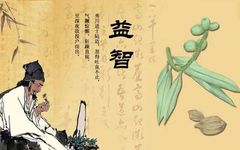Author: Zhang Jieshuai, Mei Quanxi, Shenzhen Baoan Pure TCM Treatment Hospital
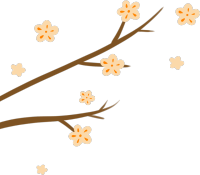 Mei Quanxi Column
Mei Quanxi Column
Bencao Gangmu
Herb Section Volume 14
Discussing Yizhi from the Shared Origins of Medicine and Food


According to Hong Mai’s Yijian Zhi: The scholar Lu Mai from Xiuchuan suddenly experienced continuous vomiting of blood, gasping, trembling, and manic behavior, wanting to break out of the door at night. This lasted for two nights, and various prescriptions were ineffective. One night, he dreamt of Guanyin Bodhisattva who taught him a prescription, saying that he only needed to take one dose to permanently eliminate the root of the disease. He remembered the prescription, and upon waking, he prepared the medicine according to the prescription, and indeed, he was cured.From Bencao Gangmu, Herb Section Volume 14, Yizhi Zi “Discovery”.
1
The Story of Yizhi Ren

 In the Herb Section of Bencao Gangmu, while introducing this herb, a story from Yijian Zhi is narrated:There was a scholar named Lu Mai in Xiuchuan who suddenly fell ill, showing symptoms of continuous vomiting of blood, gasping, trembling, and manic behavior, with his eyes wide open. At night, he wanted to break out of the door. This continued for two nights, and various medicines were ineffective. One night, he dreamt of Guanyin Bodhisattva who taught him a prescription, saying that he only needed to take one dose of medicine to permanently eliminate this illness. He remembered the prescription, and upon waking, he prepared the medicine according to the prescription, and indeed, he was cured. The prescription was: Yizhi Zi Ren (1 liang), Sheng Zhu Sha (2 qian), Qing Ju Pi (5 qian), She Xiang (1 qian), ground into a fine powder, take 1 qian each time, and consume it with a decoction of Dengxin Cao on an empty stomach, and he was cured.
In the Herb Section of Bencao Gangmu, while introducing this herb, a story from Yijian Zhi is narrated:There was a scholar named Lu Mai in Xiuchuan who suddenly fell ill, showing symptoms of continuous vomiting of blood, gasping, trembling, and manic behavior, with his eyes wide open. At night, he wanted to break out of the door. This continued for two nights, and various medicines were ineffective. One night, he dreamt of Guanyin Bodhisattva who taught him a prescription, saying that he only needed to take one dose of medicine to permanently eliminate this illness. He remembered the prescription, and upon waking, he prepared the medicine according to the prescription, and indeed, he was cured. The prescription was: Yizhi Zi Ren (1 liang), Sheng Zhu Sha (2 qian), Qing Ju Pi (5 qian), She Xiang (1 qian), ground into a fine powder, take 1 qian each time, and consume it with a decoction of Dengxin Cao on an empty stomach, and he was cured.
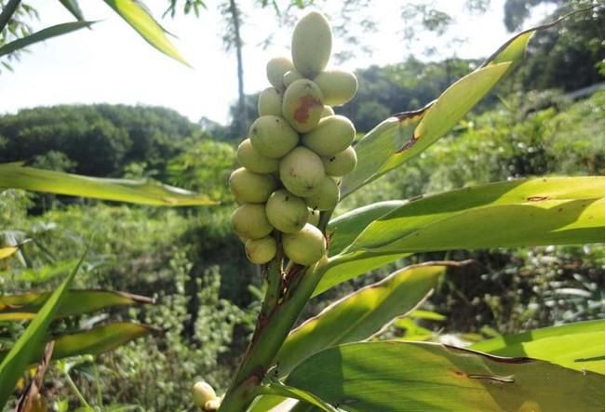
Yizhi Ren Plant Image
2
The Naming of Yizhi Ren


Yizhi Ren is the fruit of the plant Yizhi (Alpinia oxyphylla). It is also known as Yizhi Zi and Zhaizhi. The name Yizhi is recorded in the “Southern Herbs” which states: “Yizhi Zi, resembling a pen hair, 7-8 fen long, flowers in February, color like lotus, bears fruit in May and June. It has a spicy taste, mixed with five flavors, fragrant, and can also be salted and dried.” The ancients believed that “taking it enhances wisdom, hence the name.” Li Shizhen in Bencao Gangmu pointed out: “The spleen governs wisdom, and this substance can benefit the spleen and stomach, hence the name.” There is also an interesting story about the origin of the name Yizhi Ren.
It is said that there was a wealthy man who, after fifty years, finally had a son named Laifu. Laifu was weak and sickly as a child, had a particularly large head, drooled, was slow to respond, and was dull in behavior, wetting the bed every day. Years passed, and Laifu remained taciturn and had a particularly poor memory, and by the age of ten, he still could not count, seeking medical help everywhere without success. One day, a wandering Taoist came to this place and said that there was a divine fruit several thousand miles away that could cure this illness, and he drew a picture on the ground of a small tree with leaves resembling those of the Qiang tree, with several olive-like fruits at the root. After finishing the drawing, he left. In order to cure his only son, the wealthy man climbed mountains and crossed rivers to find this medicine. On the way back, due to lack of food, he ate ten divine fruits daily to stave off hunger, but found that his memory improved and his energy became very vigorous. After finishing the fruits, Laifu’s health gradually improved, and his personality became lively and cheerful. Later, he participated in the imperial examination and became the top scholar. To commemorate this event, the divine fruit was named “Zhuangyuan Guo” (Top Scholar Fruit), and because it enhances wisdom and strengthens intelligence, it was also called Yizhi Ren.
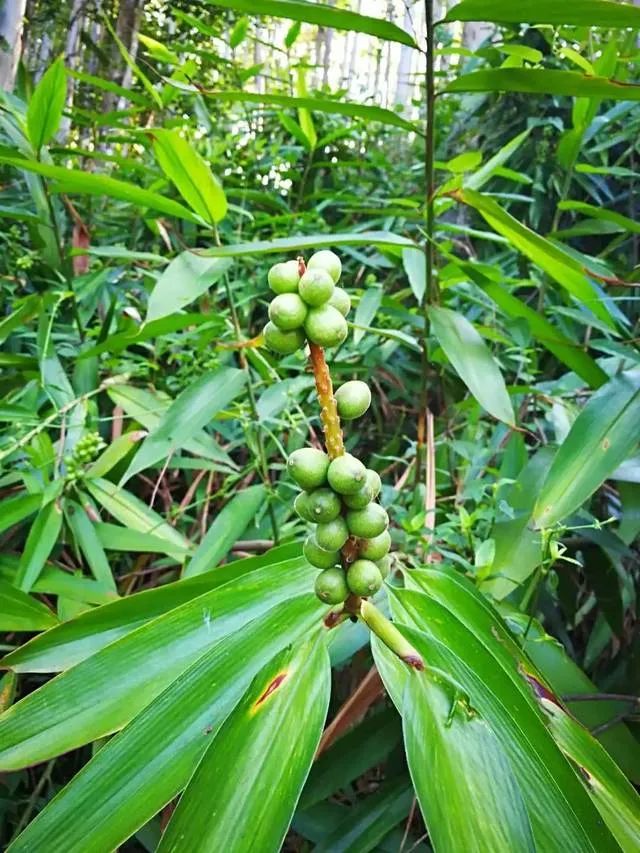
Yizhi Ren Plant ImageYizhi Ren is mainly distributed in Guangdong and Hainan, and is also cultivated in Fujian, Guangxi, and Yunnan. Yizhi Ren appears as irregular flat round seeds or seed clusters. The seeds have slightly blunt edges, with a diameter of about 3 mm; the surface is grayish-yellow to gray-brown, with fine wrinkles; covered with a light brown membranous pericarp; hard texture, with white endosperm. It has a distinctive aroma and a spicy, slightly bitter taste.As a medicinal substance, Yizhi Ren first appeared in Chen Zangqi’s “Bencao Shiyi”, described as spicy and warm, without mentioning its astringency. Regarding its efficacy, many herbal texts have recorded it. Liu Han and Ma Zhi in “Kaibao Bencao” wrote: “It treats nocturnal emissions, urinary dribbling, benefits qi and calms the spirit, replenishes deficiencies, stabilizes the three burners, regulates qi, and for those with frequent urination at night, take twenty-four pieces, crush, and boil with salt.” Wang Ang’s “Bencao Beiyao” recorded: “It can astringe essence and solidify qi, warm the middle and promote appetite, restrain saliva, and reduce urination. It treats vomiting and diarrhea, cold invading the stomach, cold abdominal pain, and excessive menstrual bleeding.” The “Zhi Zhi Fang” recorded that the heart is the mother of the spleen, fire can generate earth, and Yizhi Ren can help the heart medicine enter the spleen and stomach earth, as all things are born from earth and return to earth. Therefore, in ancient times, when treating anorexia, Yizhi Ren was included in the appetite-promoting medicines. When excessive thinking leads to mania, combining it with calming and stabilizing medicines, Yizhi Ren can guide various medicines back to earth for healing.Yizhi Ren is one of the four major southern medicines and is also a food-medicine dual-use substance, widely used clinically, often for treating symptoms of spleen and stomach deficiency and cold. Zhang Yuansu’s “Medical Enlightenment” recorded that it “treats excessive salivation, and should be used in conjunction with tonifying herbs.” Yizhi Ren can warm the kidney and assist yang, solidify essence and reduce urination, used for kidney qi deficiency and cold causing nocturnal emissions, enuresis, urinary dribbling, and increased nighttime urination, often combined with Shan Yao (Chinese Yam), Wu Yao (Lindera), etc. in formulas like Shuo Niao Wan; combined with Gan Jiang (Dried Ginger), Bai Zhu (White Atractylodes) to treat spleen and stomach deficiency and cold, vomiting, diarrhea, and cold abdominal pain, it is a good kidney-tonifying and anti-aging herb. It is often paired with Jin Ying Zi (Cherokee Rose), Fu Pen Zi (Raspberry), and Shan Zhu Yu (Cornelian Cherry) to treat nocturnal emissions and spermatorrhea, combined with Ge Gen (Kudzu) and Rou Dou Kou (Nutmeg) for spleen and kidney deficiency diarrhea, combined with Gan Jiang and Ding Xiang (Clove) for stomach cold and vomiting, and combined with Chuan Wu (Aconite) and Gan Jiang for treating cold damage with yin excess, heart and abdominal fullness, vomiting, diarrhea, and cold extremities. Used with Bi Xie (Dichroa) to warm the kidney and transform turbidity, as in the “Dan Xi Xin Fa” Bi Xie Fen Qing Decoction; for treating nocturnal emissions due to dreams, it is used to tonify the kidney and stop emissions, often combined with Ren Shen (Ginseng), Yuan Zhi (Polygala), and Long Gu (Dragon Bone) to achieve the effect of tonifying the heart spirit, calming the spirit, and astringing essence. For treating cold-induced hernia pain, it can be used with Xiao Hui Xiang (Fennel), Wu Tou (Aconite), and Qing Pi (Green Tangerine Peel) to drive away cold and move qi, as in the “Ji Sheng Fang” Yizhi Ren Decoction.As a food ingredient, Yizhi Ren is also widely used. It can be made into Yizhi Ren Walnut Soup with walnut kernels, almonds, and goji berries to enhance brain function; red ginseng and Yizhi Ren powder can tonify the spleen and solidify the kidney, and cooking it with japonica rice makes Yizhi Ren porridge to harmonize and strengthen the spleen, etc. Thus, Yizhi Ren is also a very good choice as a food ingredient. Additionally, Yizhi oil extracted from Yizhi Ren can be made into moisturizing cream, which has anti-wrinkle and anti-aging effects. Yizhi Ren is warm but not hot, nourishing but not harsh, astringent but not draining, with a gentle nature, making it suitable for those engaged in mental labor for a long time and those with weak constitutions to use for enhancing brain function, delaying aging, and promoting longevity.In the long-term clinical application process, a traditional understanding has formed that “raw products enter the spleen, salt-roasted products enter the kidney, and there is a difference between raw and cooked.” Raw products are spicy, warm, and drying, mainly entering the spleen channel, effectively warming the spleen to stop diarrhea and restraining saliva, often used for abdominal pain, vomiting, and excessive salivation due to spleen and stomach deficiency and cold, such as in clinical treatments for cold damage with yin excess, vomiting, and diarrhea using Yizhi San; while salt-roasted Yizhi Ren mainly enters the kidney channel, also entering the spleen channel, enhancing the warming kidney and reducing urination effect, mainly treating kidney deficiency with clear and frequent urination, frequent nighttime urination or enuresis. In the 2020 edition of the “Chinese Pharmacopoeia”, many formulated preparations use its salt-roasted product, focusing on warming the kidney and reducing urination.
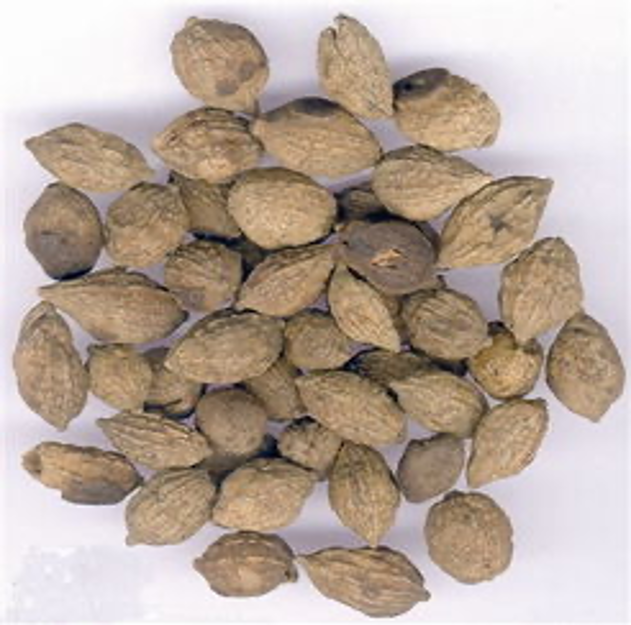
Yizhi Ren Medicinal Material Image
3
Pharmacological Effects


Traditional Chinese Medicine believes that Yizhi Ren has a spicy and warm flavor. It enters the spleen and kidney channels. Its main effects are warming the kidney, solidifying essence, reducing urination, warming the spleen, stopping diarrhea, and restraining saliva. It is used for kidney deficiency with enuresis, frequent urination, nocturnal emissions with turbid discharge, spleen cold diarrhea, cold abdominal pain, and excessive salivation. The main chemical components include terpenoids, sterols, dibenzylbutyrolactones, flavonoids, phenolic compounds, as well as substances like kaempferol-4′-O-methyl ether, vitamins, trace elements, and fatty acids. Modern pharmacological studies have shown that Yizhi Ren and its effective components have various pharmacological effects, summarized as follows:
1. Neuroprotective and Cognitive Enhancing Effects:The protocatechuic acid contained in Yizhi also has neuroprotective effects. The water extract of Yizhi Ren has a good protective effect on neuronal damage caused by cerebral ischemia-reperfusion and can significantly improve the learning and memory abilities of aging Kunming mice. The 50% ethanol extract of Yizhi Ren has diuretic, anti-dementia, and learning ability-enhancing effects in animals.2. Effects on the Cardiovascular System:The methanol extract of Yizhi Ren fruit has a powerful positive inotropic effect on the left atrium of guinea pigs. The ethyl acetate extract of Yizhi Ren has a strong cardiac effect.3. Effects on the Gastrointestinal System:Oral administration of the acetone extract of Yizhi Ren fruit at 20 mg/kg can significantly inhibit gastric damage in rats and is a major component for treating gastric diseases. The 50% ethanol extract of Yizhi Ren has anti-ulcer effects. Yizhi Ren has an antagonistic effect on diarrhea caused by senna leaves and inhibits intestinal propulsion and gastric emptying in normal mice.4. Anticancer Effects:The water extract of Yizhi Ren has moderate activity in inhibiting the growth of sarcoma cells, and the methanol extract has activity in inhibiting the growth of skin cancer cells in mice. The Yizhi ketone A and Yizhi ketone B in the fruit can inhibit skin cancer.
In addition, Yizhi Ren also has analgesic, anti-aging, prostaglandin inhibition, anti-allergic, liver protection, anti-fatigue, hypoxia resistance, and high-temperature resistance effects.

Yizhi Ren Medicinal Material Image
4
Folk Remedies

 Folk prescriptions for Yizhi Ren have shown excellent clinical effects, such as:
Folk prescriptions for Yizhi Ren have shown excellent clinical effects, such as:
1
Treating Nocturnal Enuresis in Children
3 grams of Yizhi Ren, appropriate amount of vinegar, grind the Yizhi Ren with vinegar into a fine powder and swallow.
2
Treating Diarrhea in Infants and Young Children
Guben Yao Dai (composed of Yizhi Ren, Bai Hu Jiao (White Pepper), Wu Zhu Yu (Evodia), Bing Pian (Borneol), Ai Ye (Mugwort), ground into fine powder, 5 grams per bag) applied externally to Shenque and Shenshu points, each bag can be used for 7 days.
3
Treating Insomnia
Press Yizhi Ren seeds on acupoints, main points: Shenmen, Xinshu, Shenshu, Naomian, with additional points: Ganshu, Danshu, Pishu.
4
Treating Abdominal Distension and Diarrhea, Continuous Day and Night
60 grams of Yizhi Ren, decocted strongly and consumed.
5
Treating Excessive Salivation in Children
Take 6 grams of Yizhi Ren and Sheng Bai Zhu (Fresh Atractylodes), boil in water for half an hour and consume, once daily.
6
Treating Simple Diarrhea
50 grams of Yizhi Ren, add 250 ml of water, decoct to 100 ml, take 1-2 times daily.
7
Treating Uterine Bleeding
5 grams of Yizhi Ren, 10 grams of Sha Ren (Amomum), ground into fine powder, 10 grams each time, twice daily.
8
Treating Male and Female Discharge
Salt-roasted Yizhi Ren, ginger juice stir-fried Hou Po (Magnolia Bark) each 9 grams, 3 slices of ginger, 1 jujube, boiled in water.
9
Treating Habitual Miscarriage
9 grams of Yizhi Ren, 10 grams each of Sheng Ma (Cimicifuga), Bai Zhu, and Ai Ye, boiled in water.
10
Treating Red and Turbid Urination
5 grams of Yuan Zhi, 3 grams of Yizhi Ren, 3 grams of Fu Ling (Poria), 3 jujubes, 3 grams of flower tea, boiled in water.
11
Treating Urgent Pain in the Lower Abdomen, Red and Painful Urination
10 grams of Yizhi Ren, 50 grams of fresh Chen Li (Tamarisk), boiled in water.
12
Treating Bad Breath
50 grams of Yizhi Ren, 6 grams of Gan Cao (Licorice), ground into powder and licked.

Usage Precautions

Contraindicated for those with yin deficiency and excess heat or those suffering from heat-related enuresis or bleeding.
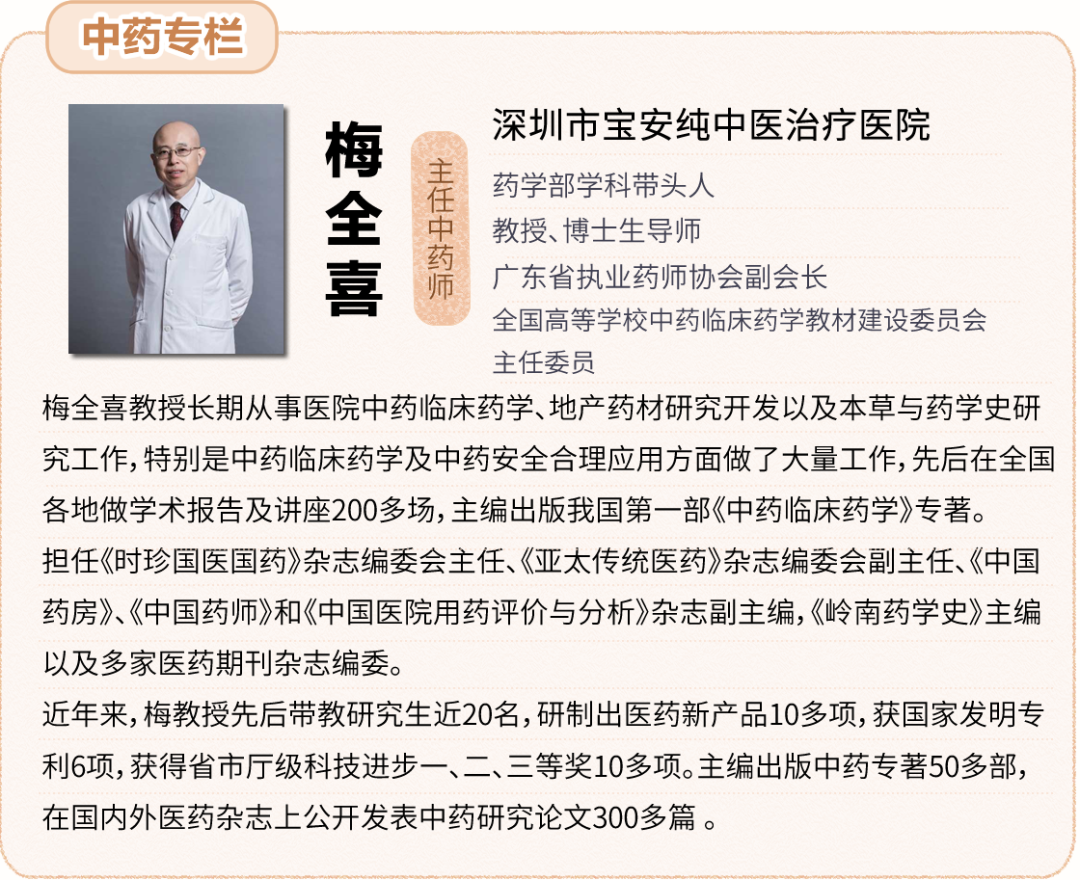
We welcome everyone to leave comments below, sharing insights gained from reading the stories of traditional Chinese medicine.
Recommended Reading
-
Story 36 of Bencao Gangmu: Bai Zhi Effectively Treats Headaches
-
Story 35 of Bencao Gangmu: Wu Wei Zi Treats Chronic Cough and Weakness
-
Story 34 of Bencao Gangmu: Natural Copper Treats Fractures
-
Story 33 of Bencao Gangmu: Pepper Causes Eye Diseases
-
Story 32 of Bencao Gangmu: Xu Duan Treats Dysentery

